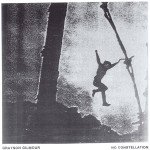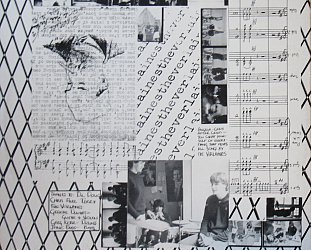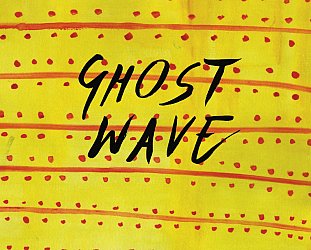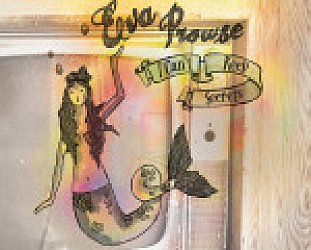Graham Reid | | 1 min read
Grayson Gilmour: Our Heads Colide

We shouldn't feel too sorry for the profoundly talented Grayson Gilmour -- but I do sympathise with him at the moment: being the first act signed to the resurrected Flying Nun label means that has become the story and not this quite superb album.
I have heard and seen Gilmour interviewed repeatedly and most of the time has been taken up with asking him what he thinks about being on such a label -- and very little about the layered, supple and often melodically sublime music on this, the fourth album under his own name. (There's also an EP and he's a member of So So Modern).
Okay, let's get the Nun connection out of the way: it is record label and even from the start there were diverse artists in its roster -- but perhaps the over-riding feature was guitar bands.
Gilmour parts company right there: he is predominantly a piano player and so these songs are constructed around some gorgeous keyboard melodies which -- when vocals are layered over as in the case of Chromosomes and the especially lovely Our Heads Collide -- recall the best of Brian Wilson at his most innovative with the Beach Boys.
So your reference point for this Nun artist isn't the guitar jangle'n'drone of Velvet Underground but rather more orchestrated, sophisticated pop with interesting touches of minimalism (there are repeated phrases and piano figures throughout, notably I Am A Light! and the slight Circa Skeleton 31) with a twist of distortion or an odd melodic angle (or instrumentation) to keep everybody honest.
He doesn't shy away from a quiet ballad (the reflective Fire Downstairs about a friend who has died) and the poppy quality of Gem Apple John suggests what Paul McCartney might have sounded like in the early Seventies if he'd decided to make rather more experimental pop than Another Day and Mary Had a Little A Lamb. The closer Oh Stasis is an achingly beautiful piece of sonic cinema with an almost choral quality.
Not everything makes such a strong impression -- All Authenticity goes past beneath a repeated piano part which then turns into staccato riffery, Diamond Gutters Mermaid Sewers doesn't tell us much more than he has already established elsewhere to more memorable effect.
But the overall impression here is of a mature, musically inventive, lyrically interesting artist who might already have a bit of history and a very interesting present, but undoubtedly has a fascinating future -- and that must have made him very appealing for that label he now appears on.







post a comment